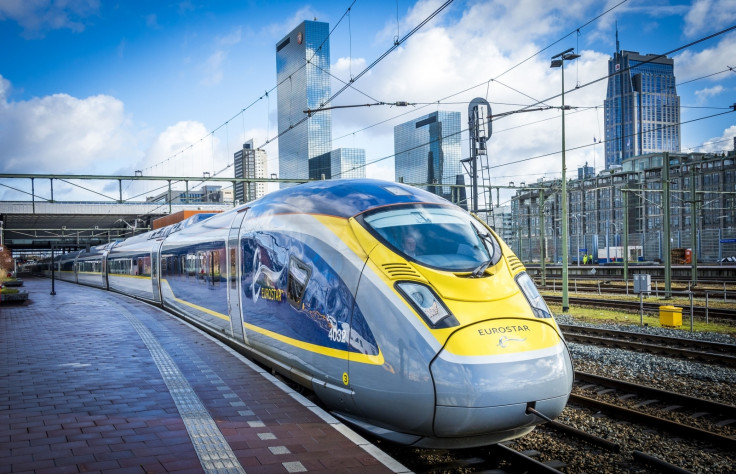Disappointing news for UK travellers as Eurostar set to suspend Amsterdam-London route
This week, Eurostar also ended its services from London to Disneyland Paris

Eurostar's train services between Amsterdam and London reportedly could be suspended for up to 11 months, starting from 2024.
This is due to renovation work on Amsterdam's main railway station. According to Dutch infrastructure secretary, Vivianne Heijnen, the renovation work will begin in June 2024 and go on till at least May 2025. In this period, Eurostar's trains from London to Rotterdam also won't be functional, reported The Independent.
"We have received confirmation from the Dutch Government that Eurostar will not be able to run the Amsterdam Route from June 2024 until April 2025.
"The proposal to move the Dutch departure/arrivals lounge from Amsterdam to Rotterdam is not viable due to capacity and safety reasons. Should this be the only option offered by the Ministry, Eurostar Group will be left with no choice but to stop its Amsterdam direct routes," a Eurostar spokesperson said.
The spokesperson went on to add that Eurostar "is open to compromise and is working with stakeholders to find a solution."
Why are Eurostar's Amsterdam-London trains being suspended?
Eurostar operates four trains in each direction between London and Amsterdam, with plans to add a fifth service. The trains on this route are set to be suspended because the renovation project to expand the size of the international terminal at Amsterdam's Centraal Station will involve demolishing existing facilities used to carry out post-Brexit passport and security checks.
While Eurostar is trying to look for a solution to avoid the London-Amsterdam train suspension next year, Heijnen revealed that their attempts have so far gone unsuccessful.
However, the Dutch Ministry of Infrastructure wants to speed up the completion of the new Amstelpassage, which will see the Eurostar terminal relocated to a passage beneath the station.
Originally scheduled for completion in spring 2025, the terminal could be partially open by late 2024. This would reduce Eurostar's London-Amsterdam route suspension to only seven months instead of 11. Once the passage is complete, it will more than double the capacity for departures to the UK and will improve comfort, safety, and connectivity for travellers.
With Eurostar train service suspended between Amsterdam and London, passengers will likely opt to travel by air.
"I am aware that this outcome has a negative impact on the passengers and the ambition to replace short-haul flights with trains," Heijnen, who also serves as Netherlands' Minister of Environment, said last week
Amsterdam Centraal can currently process up to 250 passengers per train for Eurostar's service to London. While the Eurostar could still run to Rotterdam - 40 minutes from Amsterdam on local train services, this station has a lower capacity of 160, which makes it an unfeasible alternative.
Brexit's impact on Eurostar trains
Earlier this week, Eurostar ended its services from London to Disneyland Paris due to Brexit-related red tape. Eurostar's Disneyland Express, a direct high-speed rail link to the heart of the theme park east of Paris, had been running since 1996, except for a pause during the Covid crisis.
Since UK's exit from the European Union, train stations receiving services from London have had to introduce passport and baggage checks. This required additional staff, time and space in stations.
With the implementation of the EU Entry/Exit System (EES) delayed and restricted capacity at terminals across Europe, Eurostar has been cutting down services from the UK.
During the covid-19 pandemic, Eurostar shut down two stations in Kent: Ebbsfleet and Ashford International, which are not expected to be reopened until 2025 at the earliest.
The direct train from London St. Pancras to Lyon, Avignon and Marseille has also been dropped. Calais-Frethun station, serving the French port, is also suspended.
If Eurostar eventually shuts down its connections between Netherlands and the UK, it would see the operator's network reduced from a pre-Brexit total of 13 year-round stations to just four: London, Lille, Paris and Brussels.
© Copyright IBTimes 2025. All rights reserved.






















